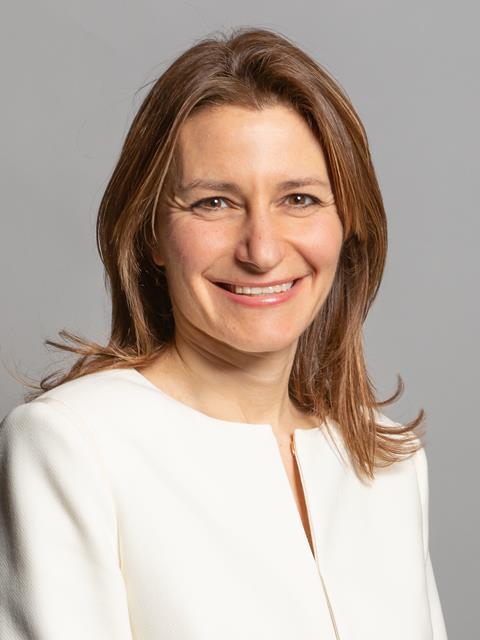Chris Bryant says ‘of course’ party will maintain financial incentives during creative sectors general election debate

The Labour party has pledged to keep the creative sector tax reliefs if they get into power after the general election
Speaking during a during an online cross-party debate hosted by Creative UK yesterday (20 June), shadow minister for creative industries and digital Chris Bryant, said: “Of course we’re going to keep the tax reliefs. We invented the idea of tax reliefs right at the beginning.”
The film tax relief was first introduced in 2007 under a Labour government.
Bryant did not go into detail about any potential changes to the current credits that Labour could implement, simply noting: “Of course we’ve got to keep elements of them under review, so that they’re as competitive around the world as is possible.
“I would argue it’s taken us rather a long time to get to the point where post-production isn’t lost, for instance, to Canada,” referring to the Conservative government’s decision in the March budget to increase the rate of tax credit by 5% and remove the 80% cap for visual effects.
Culture secretary Lucy Frazer, praised the Conservative’s track record on enhancing the film and TV tax credits, which included the Audio-Visual Expenditure Credit and the Independent Film Tax Credit in March’s budget.

“We’ve committed to making sure we’re globally competitive with our tax relief, and we’ve committed in our manifesto, Labour have not committed in their manifesto, to making sure that our creative sector tax incentives remain competitive,” Frazer said. ”The UK is now the second most popular place in the world to make films and high-end TV, and that’s a direct result of the tax relief that we’ve brought in year after year after year after year.”
Freelancer support
Support for freelancers and protection for creatives against threats from artificial intelligence (AI) were further key talking points in the debate.
It was hosted by TV producer and Creative UK board member Peter Bazalgette, who fielded questions from Creative UK members to Frazer and Bryant, alongside Tim Clement-Jones, the Liberal Democrats’ Lords spokesperson for science, innovation and technology; Jack Lenox, the Green Party culture, sport and digital inclusion spokesperson; and Plaid Cymru’s Heledd Fychan. David Bull, co-deputy leader of Reform UK, did not take part as billed.
When asked for the single most effective measure they would put in place to transform the funding model for the creative and cultural industries, Frazer said: “We’ve set out a plan to grow the creative industries by an extra £50bn, with a million more jobs. The best way to do that is to change the framework, ie. the tax incentives, to make sure that we’re globally competitive.”
Bryant answered with a focus on supporting education and training, wanting to ensure that every child “has an equal opportunity to make a career in the creative industries – one of my anxieties over the last few years is increasingly we’ve seen the creative industries being more and more dependent on people for whom it’s effectively a hereditary career”.
Referencing the effect last year’s Hollywood strikes had on drying up production in the UK, Bryant added: “We need to think about the model. We’ve got 50% of people in the creative industries as freelancers.
“In the last year, partly because of events in the United States and other things, we’ve ended up with a lot of people having absolutely no work for the best part of nine months, and I would like to see, at the end of five or maybe 10 years of if Labour were to come into government, that you would have fewer people relying on such insecure work pattern.
Clement-Jones said: “We need to replace the apprenticeship levy with a much more flexible training and skills levy, and we need to protect creative arts degrees’ funding in universities. All this talk by government of Mickey Mouse degrees is extremely damaging to our art sectors. It’s kind of [a] culture war that seems to have been engaged in…Of course tax reliefs are relevant, but it’s that skills pipeline which is so important.”
The Greens’ Lennox added: “We’re talking about restoring the culture, media and sport budget to something close to what it was in 2010,” adding that the Conservative government has taken a “wrecking ball” to the creative industries.
He also outlined plans for local councils to be better funded to play a more important part in arts and culture backing.
Plaid Cymru’s Fychan echoed Lennox on the need for devolution of funding, with fears the creative industries are “becoming elitist”.
Lenox would like to see a universal basic income for artists and creatives, however Bryant did not throw Labour’s weight behind this idea. “It would be very easy for me to make all sorts of promises about spending money here, there and everywhere, and I honestly wish I could,” he said.
“But the truth is, if we get to form a government on July 5th, we’ll probably have the worst financial possible pass in British history. And we have to be very responsible about the promises that we can and we can’t make.”
One area Bryant would like to see change on is planning permission for studio builds. “We also have to do something about planning. I’ve just noticed that James Cameron wants to bring a lot of his work to the UK to a new studio in [Marlow] Buckinghamshire, that’s been knocked back at planning. I hear this from so many different studio developments that say it doesn’t take one or two years to go through planning, it takes seven or eight years. That’s a nonsense for our economy.”
A recording of the debate will be made available online to the general public next week. Creative UK is the national membership body for the cultural and creative industries.
AI threat
The threat of AI to creatives was also addressed. “This is the most important question that a government should be asking itself for the future, because if we don’t get AI right for the creative industries and for rights holders, we’ve going to see a fundamental change in whether they can survive,” Frazer said. However, she stopped short of saying the Conservatives would legislate for this protection.
“We have said, in terms, we will ensure creatives are property protected and renumerated for their work. We will do that by working with both sets of industries, the tech and the creatives, to make sure we get the position right.”
Bryant said: “Intellectual property is as important as any other kind of property. We know we will have to legislate in relation to AI in some degrees already, even when the [Conservative] government itself has said it’s going to adopt a voluntary code that has never come to pass.”
Fychan noted: “One of the challenges we have is that [AI advancement] is so fast-moving, government legislation becomes [takes] so long that it’s outdated by the time it becomes legislation. I would like to see any part commit to prioritising this but also being agile as we respond. Intellectual property is key.”
- A version of this story first appeared on our sister publication Screen
































No comments yet